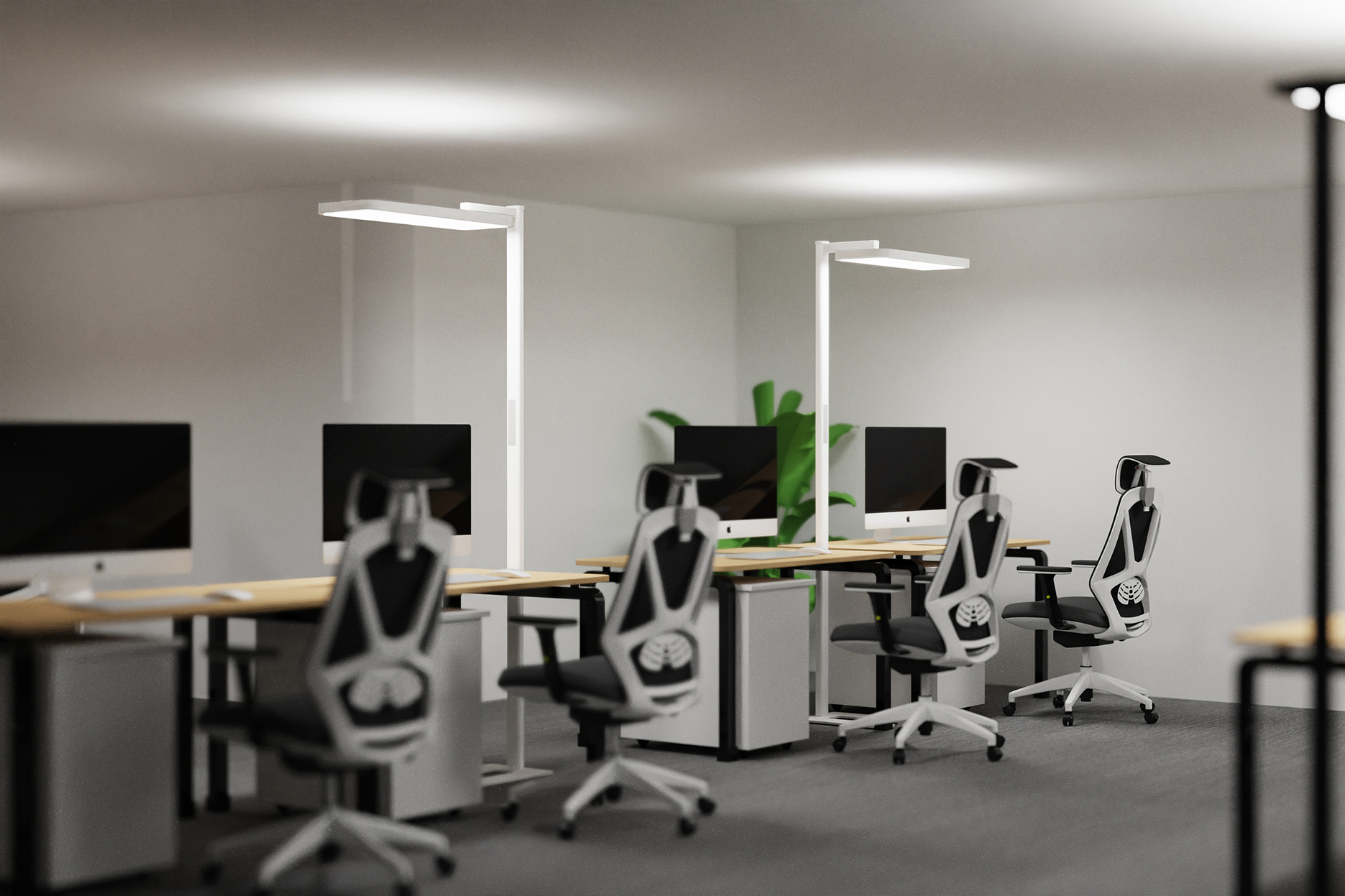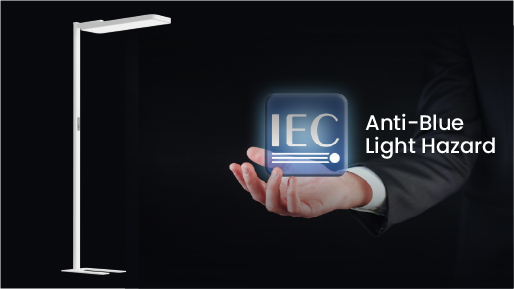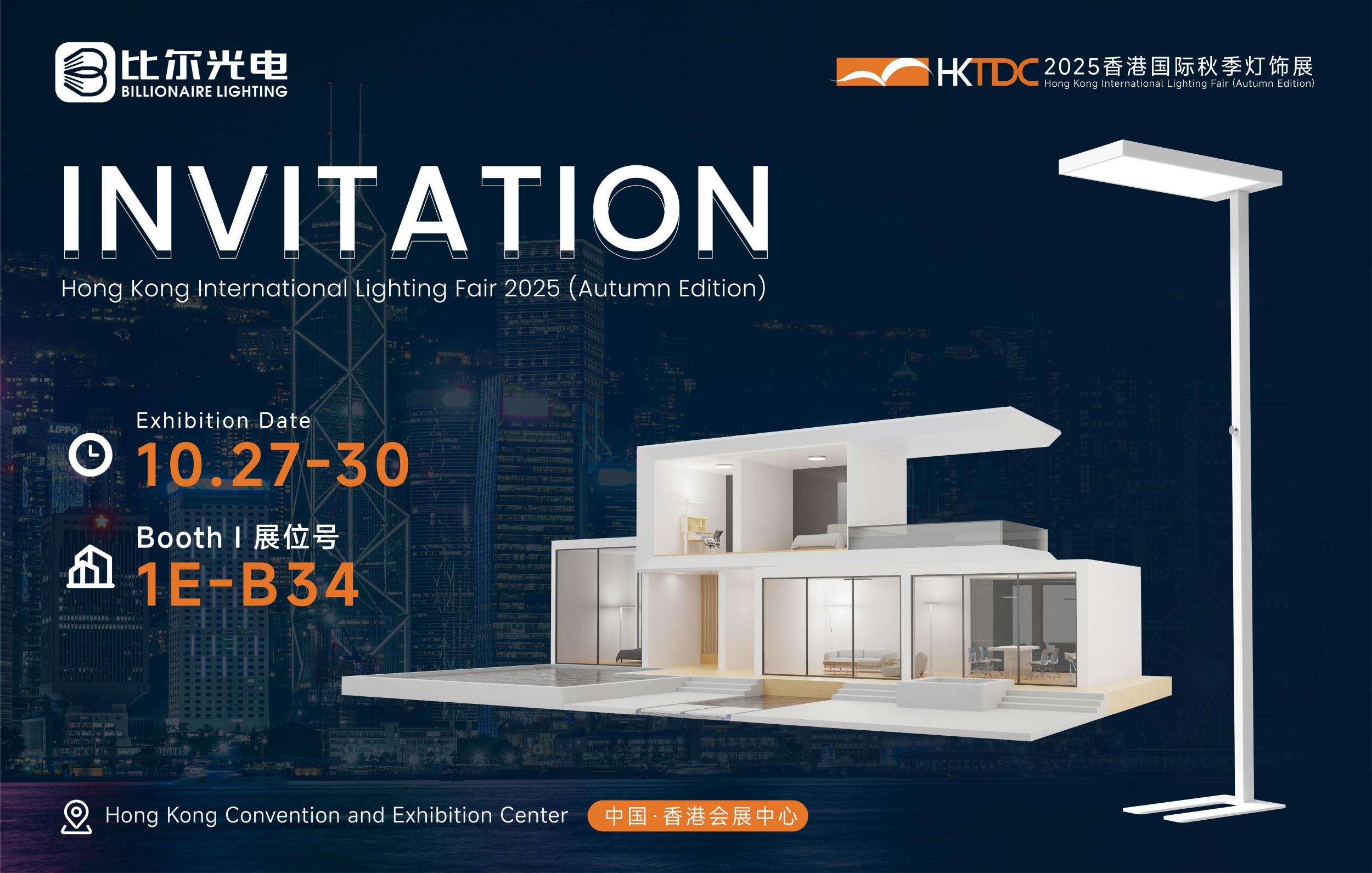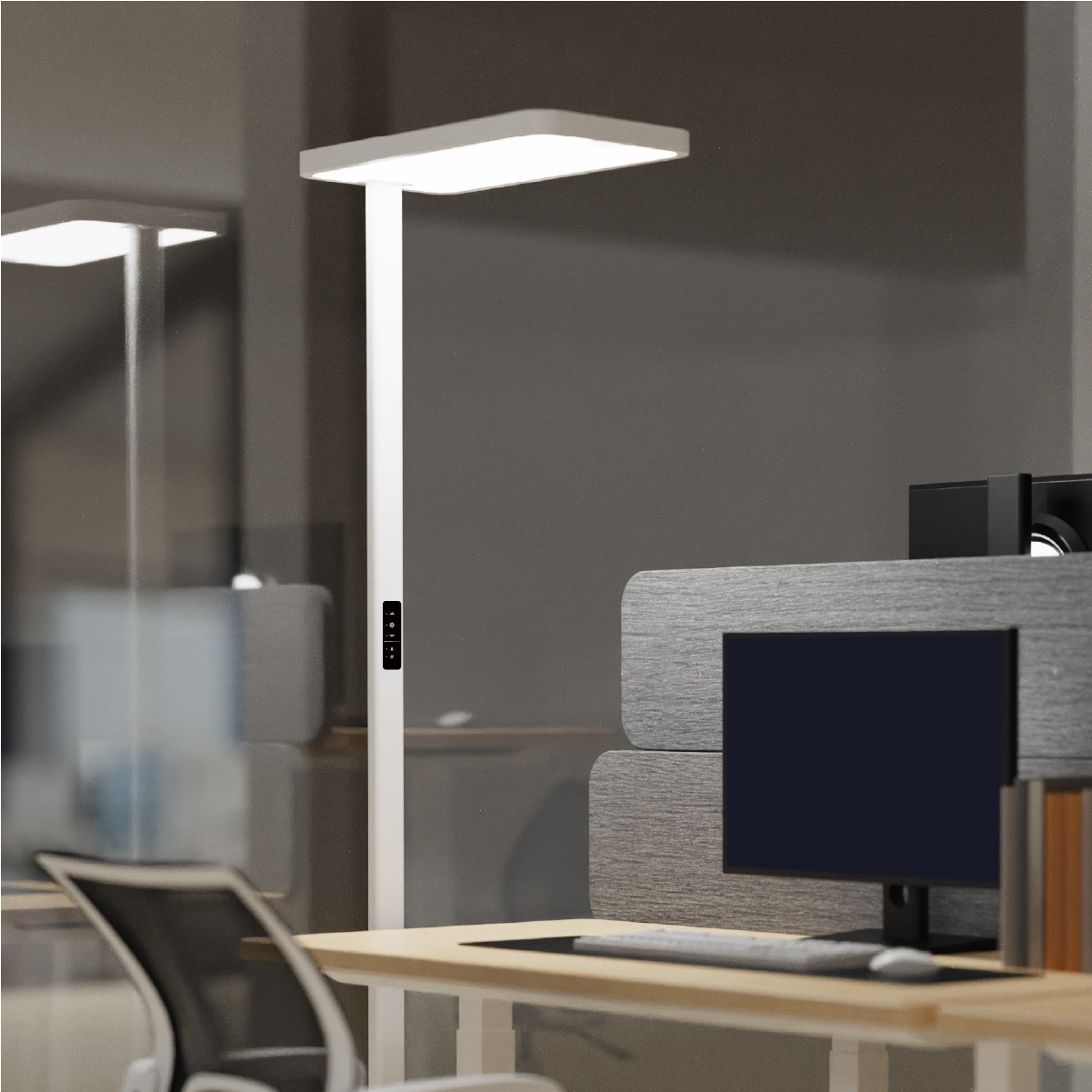Selecting office lighting requires comprehensive consideration of four aspects: lighting standards, luminaire types, core parameters, and spatial functionality. This ensures both work requirements are met and visual health is protected.

Lighting Standard Requirements
According to national standards, distinct illuminance levels are specified for different office zones:
• General office areas: 300–500 lux, ensuring effortless computer use and document writing
Fixture Type Selection
Different fixtures suit distinct office scenarios:
Basic Lighting Categories
• Floor lamps: Ideal for breakout areas or meeting rooms, providing ambient soft lighting
• Desk lamps: Essential for workstations, offering adjustable brightness and angles to meet individual needs
Core Parameter Considerations
Eye Protection Features
• Anti-glare design: Prevents direct light from entering the eyes; choose fixtures with frosted lampshades
• Blue light protection: Opt for RG0 blue light exemption-level products for safer extended screen use
• Flicker-free technology: Reduces eye strain and safeguards visual health
Colour Rendering Index
• Ra≥90: Accurately reproduces true colours for clearer document reading and facial recognition
• Ra95+: Ideal for colour-sensitive tasks like design and fine art
Colour Temperature Selection
• 4000K Neutral White: Mimics natural daylight, balanced for daily office use
• 3000K Warm White: Creates cosy ambience in relaxation zones
• 5000K cool white light: Suitable for tasks requiring high concentration
Zone-Specific Configuration Recommendations
Workstation Areas
• Combine general lighting with task lighting to prevent computer glare
• Maintain 1.2–1.5 metre spacing between luminaires for uniform illumination
Meeting Rooms
• Pair main lighting with auxiliary fixtures to accommodate discussion and presentation needs
• Incorporate dimming functionality: 500 lux for meetings, reduced to 150 lux for projections
Recreational Areas
• Warm-toned ceiling lights or pendant lamps at 150–200 lux
• Supplement with strip lighting or compact table lamps to enhance ambience
Selection Considerations
• On-site testing: We recommend experiencing lighting comfort in person, observing for glare or dark corners
Office lighting selection should prioritise eye protection, efficiency, and energy savings, with scientific configuration tailored to the functional requirements of different office zones. #OfficeSpaceLayoutInspiration #EyeProtectionOfficeLightingRecommendations #OfficeLightingSelectionGuide



